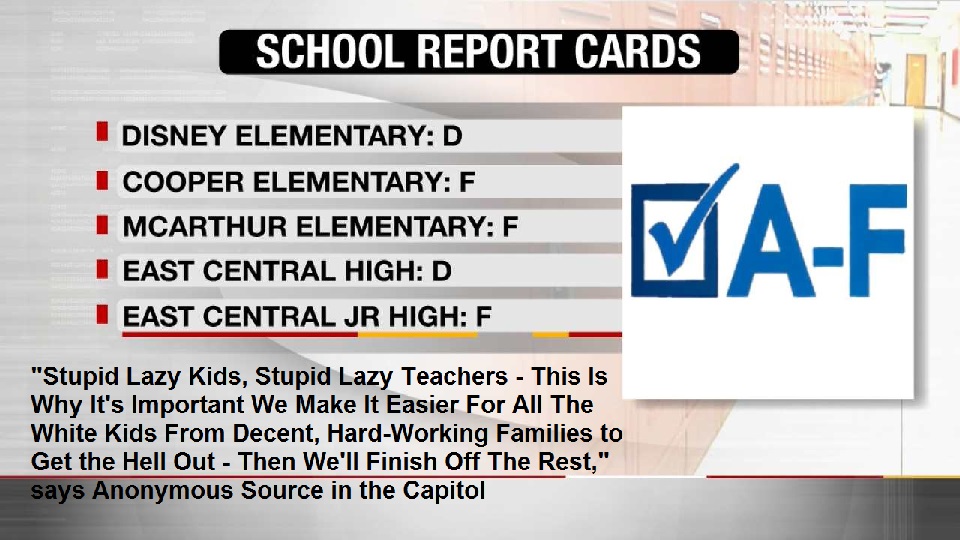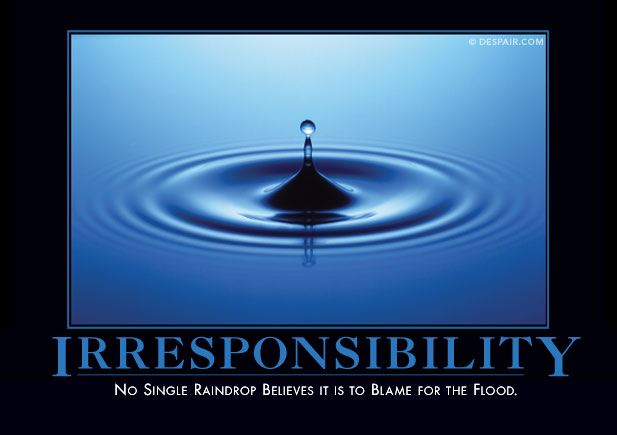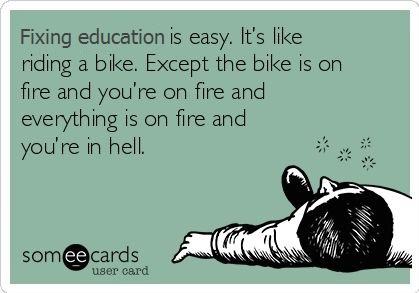 I’m a fairly narcissistic fellow. I don’t mean to be, it’s just that I’m vain and self-absorbed. At least I have the skills, style, and cojones to make it work for me. I make no apologies; every rose has it’s – oh, are you still here? I hadn’t noticed.
I’m a fairly narcissistic fellow. I don’t mean to be, it’s just that I’m vain and self-absorbed. At least I have the skills, style, and cojones to make it work for me. I make no apologies; every rose has it’s – oh, are you still here? I hadn’t noticed.
There’ve been a slew of books and workshops in recent years promising to help you teach like a pirate, like a rockstar, like a hero… I received something rather spammy recently promising to help me become a more exciting presenter and unlock a fabulous career leading teacher workshops. Just call Robert in Wisconsin at ###-###-####!
I’m not knocking any of these books or workshops. I haven’t read or attended any of them, but I see happy teachers carrying on about them on Twitter and such… they sound great.
Except the one with Robert in Wisconsin. WTF, Bob?
It’s just that I don’t want to be a pirate, or a rockstar, or a hero. I want my kids to learn a little history, ask some better questions, and maybe learn to like reading a little. And I want to do it as… me.
 I’m pretty entertaining, and I have a degree. That should buy me some leeway, yes?
I’m pretty entertaining, and I have a degree. That should buy me some leeway, yes?
Of course, you don’t need to buy books or go to conferences to hear how you should be doing everything differently. There are no shortage of researchers scolding us for forcing our kids to recite from their McGuffey’s Readers and practice multiplication tables on their chalk slates, or whatever it is they think we do.
Seriously, if I read one more heavily-footnoted interview with yet another person who’s discovered that worksheets have limited effectiveness and some people are boring when they lecture, I may become violent. Can we steer some of the funding for these redundant studies into something more useful – maybe fresh blue ink for the mimeograph machine or another History Channel Documentary on VHS?
They’re not all bad, of course. Many make some fascinating observations and connections. They challenge us to reconsider some of our assumptions about kids and how they learn, or ourselves and how we teach.
I’m a huge fan of rethinking what we do in our classrooms. I make a decent living leading workshops and peddling my teaching philosophy, sometimes for edu-entities and sometimes just as lil’ ol’ me. We should ABSOLUTELY step out of our comfort zones from time to time. It’s unforgiveable to plan our class time around what we have saved from LAST year rather than what might work best with THESE kids THIS year.
And there are some GREAT teacher books! That ‘Weird Teacher’ one and that ‘Zen‘ fellow and even one by a TFA teacher recounting her entire first year in the most IMPOSSIBLE situation. Occasionally I’m even inspired by something shared by state edu-staff, or my own district superiors. Turns out there are a bunch of really smart, experienced educators around who love helping the rest of us impact our evasive darlings.

Sometimes their ideas are better than mine. And sometimes research is right about stuff. I have much to learn about some of my students and how they think, feel, and perceive – so here’s to training, challenging, changing, and reviving.
BUT (and I have a big ‘BUT’)…
I hereby declare my official hostility towards anyone who gets paid to tell teachers they’re doing it wrong. I don’t care if they’re researchers, reformers, authors, or bloggers – kiss my class agenda, edu-snobs.
My ethical obligation to regularly seek better ways to reach more kids more deeply does NOT validate your desire to lecture me or talk down to me or my comrades. Quite honestly, if your research and ideas and pedagogy are THAT great, you wouldn’t need to be so condescending about it – we’d run to you hungry for more.
 Which, by the way, is pretty much what many of you keep telling the rest of us about OUR teaching methods – that if we were doing it right, we wouldn’t have to work so hard to coerce and browbeat our darlings into cooperation. Like you’re trying to do to us.
Which, by the way, is pretty much what many of you keep telling the rest of us about OUR teaching methods – that if we were doing it right, we wouldn’t have to work so hard to coerce and browbeat our darlings into cooperation. Like you’re trying to do to us.
You see, sharing ideas, stories, successes and failures, speculation and goals, are what professional development and collaboration and edu-blogging are all about. Maybe this time I’m at the front of the room and next time you’re showing us something your kids created, but at no point is it about being better, or smarter, or anyone ‘fixing’ anyone else.
Because at the end of the day, teaching is as much art as science. It’s as much educated guesswork as strategy. Given that you’re you and I’m me and that quirky new girl is the quirky new girl, consistency may be limited.
More significantly, my kids are my kids and your kids are yours. We may be in different rooms, different districts, or even different states, confronting different cultural variables, working with different resources, building on very different backgrounds and expectations… we’re lucky we ‘speak the same language’ at all.
 When I’m in my classroom, my number one ethical and professional obligation has absolutely nothing to do with your studies, your strategies, and sure as hell not your tests – mandated or not. I’ll certainly consider the input of my department and my building leadership, but even those should take a back seat to what I think and feel and believe will be best for MY kids, today, right now.
When I’m in my classroom, my number one ethical and professional obligation has absolutely nothing to do with your studies, your strategies, and sure as hell not your tests – mandated or not. I’ll certainly consider the input of my department and my building leadership, but even those should take a back seat to what I think and feel and believe will be best for MY kids, today, right now.
And you have the same obligation.
I hope you play along in my workshops and that you consider my thinking, just as I appreciate yours. I hope you’re open enough to risk and change and stepping outside comfort zones to evolve as an educator and a professional, even when you’re getting by just fine already.
But when it’s go time, follow your gut. Do what you know is best for you kids, now and down the road. Do it however you think will best work for them, from you. Don’t think about your evaluations, your VAM, your scores on this or that assessment, or even your career. If there’s testing to consider, then consider it – but not at the expense of what your gut tells you is best for your students.
 We’ve become SO comfortable doing things we know are bad for our kids because they’re ‘required’. Maybe we’re afraid, or maybe we simply hide behind what everyone else is doing. Is this such a rewarding career in terms of money, power, and glory, that we’ll sacrificing the very things that made it matter to begin with in order to keep it secure? Must be a helluva extra duty stipend.
We’ve become SO comfortable doing things we know are bad for our kids because they’re ‘required’. Maybe we’re afraid, or maybe we simply hide behind what everyone else is doing. Is this such a rewarding career in terms of money, power, and glory, that we’ll sacrificing the very things that made it matter to begin with in order to keep it secure? Must be a helluva extra duty stipend.
Teach like a rockstar if that works for you – or like that Freedom Writers lady or Marzano or To Sir, With Love. Challenge yourself and those around you to evolve, to up our game, and to WIN THEM ALL somehow.
But don’t you dare do anything that doesn’t ring true in your gut because I told you to, or because it’s required. Don’t you dare dismiss your inner strategist because what you’re envisioning might be stupid, or doesn’t align with something official, or might get you into trouble.
We’re trying to save kids in an unsaveable world. We’re trying to do the impossible with the insufficient. I’m not sure how many ‘right’ ways there are to attempt such madness. I’m confident the ‘wrong’ way is to try to do it as someone else.
[[{“type”:”media”,”view_mode”:”media_original”,”fid”:”2776″,”attributes”:{“alt”:””,”class”:”media-image”,”typeof”:”foaf:Image”}}]]
NOTE: This is a slightly revamped rerun of previously posted material.
RELATED POST: Hole In The Wall Education
RELATED POST: My 300 Epiphany
RELATED POST: Leave My Teachers Alone
RELATED POST: “I Am Not Tom Brady” (by Amy Berard on HaveYouHeardBlog.com)


 You get tired of cautious price-checking as you shop for groceries, or putting on your best face while you limit how many back-to-school clothes can come from Target before going back to the… usual places. Your friends don’t mean any harm when they share their vacation stories or invite you to that restaurant they chose to ‘accommodate your budget,’ but – SERIOUSLY? They don’t even have a kids’ menu there!
You get tired of cautious price-checking as you shop for groceries, or putting on your best face while you limit how many back-to-school clothes can come from Target before going back to the… usual places. Your friends don’t mean any harm when they share their vacation stories or invite you to that restaurant they chose to ‘accommodate your budget,’ but – SERIOUSLY? They don’t even have a kids’ menu there!
 But I’m going into 2016 with an open mind. It’s a new year, a new legislative session, and a new round of draconian budget cuts. Why not new ideologies and understandings as well? Maybe I’m wrong about some things. Maybe we’re ALL wrong about any NUMBER of contentious issues.
But I’m going into 2016 with an open mind. It’s a new year, a new legislative session, and a new round of draconian budget cuts. Why not new ideologies and understandings as well? Maybe I’m wrong about some things. Maybe we’re ALL wrong about any NUMBER of contentious issues.  I’m ready to sincerely consider your examples, and their stories. Seriously.
I’m ready to sincerely consider your examples, and their stories. Seriously. But both the OKSDE website and the annual rhetoric from our State Legislature is clear – schools landing on the low end of that A-F list will receive increased support – training – mentoring – guidance – resources – from the state, yes? There’s a reference to using ‘spurs’ on us I’m not crazy about, but other than that…
But both the OKSDE website and the annual rhetoric from our State Legislature is clear – schools landing on the low end of that A-F list will receive increased support – training – mentoring – guidance – resources – from the state, yes? There’s a reference to using ‘spurs’ on us I’m not crazy about, but other than that…  I know there’s a balance of sorts, and that high enough tax rates kill growth. But may I please see examples of how cutting the obligations of the most prosperous has led to more jobs, more state revenue, more services, more prosperity – in OUR state, recently?
I know there’s a balance of sorts, and that high enough tax rates kill growth. But may I please see examples of how cutting the obligations of the most prosperous has led to more jobs, more state revenue, more services, more prosperity – in OUR state, recently? 
 Amy Berard is a graduate of Lawrence Public Schools, and taught there during the first three years of receivership.She still lives in the community, but now teaches in the nearby district of Lynn.
Amy Berard is a graduate of Lawrence Public Schools, and taught there during the first three years of receivership.She still lives in the community, but now teaches in the nearby district of Lynn. 











